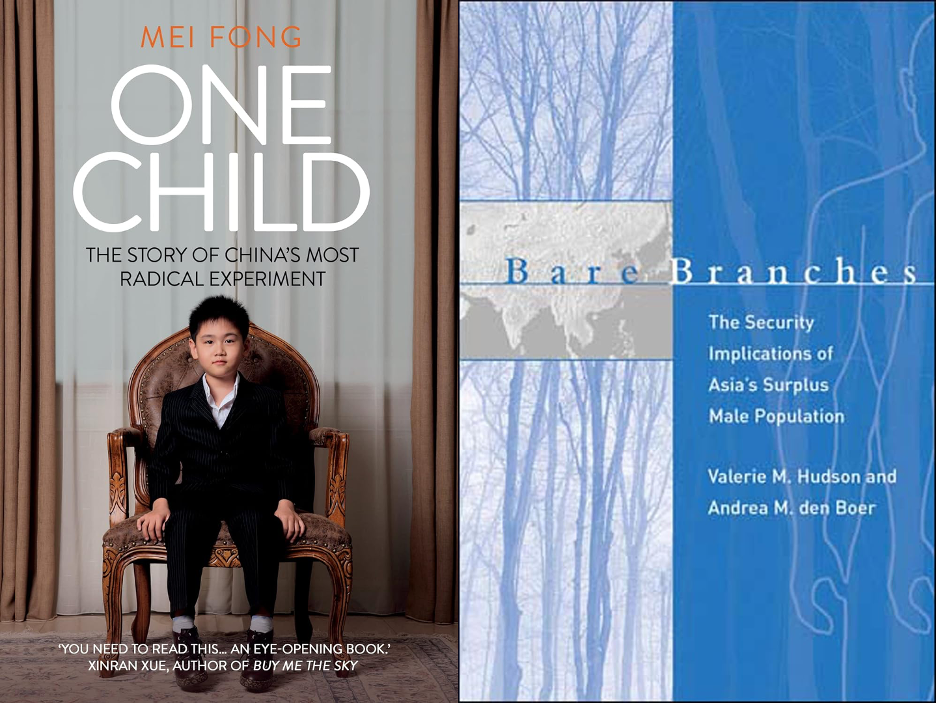Tl;dr – An excellent, griping, devastating read about twin girls separated under the coercive Family Planning office in China under the one child policy. A mix of storytelling, investigative reporting, and narrative history – it’s a fantastic read.
Until 2015, China limited families to the birth of a single child with few exceptions. I first read about the policy in depth around this time in graduate school while reading on the behavioral impacts of lopsided sex-ratios. Because boys are more valued in China and families were limited to one child, girls were selectively aborted, killed, or abandoned, leaving an abundance of men.
China is still dealing with the consequences of this policy. Millions of single men, depressed birth rates, and a shrinking population. But I had neglected a crucial angle of this policy, which goes far beyond the demographic outcomes. What happened to the girls who were – allegedly – abandoned? In Daughters of the Bamboo Grove: From China to America, a True Story of Abduction, Adoption, and Separated Twins, Barbara Demick shares the story of twin girls separated as a consequence of this policy.
The story goes that baby girls, if not aborted or killed, were abandoned. Their parents needing instead to have a boy to carry on the family name and care for them when elderly. Because China is a patrilocal society – girls marrying out to live with their husbands family while boys remain with their family after marriage – having girls presents a dead end to the family line. With strict financial penalties imposed by the Family Planning office of the China Communist Party that could bankrupt a family for having more than one child, girls were often abandoned to make room for a boy.
Unless they weren’t.
The Family Planning office in China exerted extraordinary control over families, many of which loved their girls and also wanted several children. Especially in the countryside, many children were more advantageous and desired.
As Demick shows through her investigative reporting, The Family Planning office would often abduct “extra” children, fabricate abandonment stories, institutionalize the created orphans, then sell them to Western families (many to the US) through international adoption.
And business was booming in the 2000s. Fueled by stories of abandonment, Westerners flocked to China to rescue abandoned baby girls. And while, yes, some were abandoned, thousands were abducted by the government as enforcement of policy for profit. Baby traffickers would also abduct babies for orphanages to keep up supply.
When Zanhua Zeng gave birth to identical twin girls Fangfang and Shuangjiein in 2000 – her third and fourth baby girls – she sent the stronger one to live with her brother up the road to try and evade Family Planning. Her and her husband had barely paid the fine for their extra second baby and couldn’t afford to pay off the fines for the twins. When Fangfang was 22 months old, she was violently ripped from her aunt’s arms by Family Planning officers, made into an orphan, and adopted out to a woman in Texas.
Demick’s book tells the heartbreaking story of a family’s grief, searching, and eventual re-connection over the course of 18 years. She tells the story in the context of the history of China’s One Child policy, its impact on hundreds of thousands of families and their adopted daughters, and the coercive power of the Family Planning Office.
It’s a layered book. One of unimaginable grief, political overreach, and violation of human rights. I physically coiled at the thought of having my own twin girls separated, deemed “extra” and “unneeded”, and being violently ripped from my arms by the government. It’s something I cannot fathom living through. And the strength of the families who had these horrors inflicted on them by a repressive government is commendable.
Daughters of the Bamboo Grove is an excellent read – a mix of heart wrenching storytelling, investigative reporting, and history. It’s a book that is well-written and easy to read in a few sittings. Highly recommend.
Published: May 2025
Publisher: Random House
Format: Hardcover
If you think this sounds interesting, bookmark these other great reads:
One Child: The Story of China's Most Radical Experiment (2016) by Mei Fong
Bare Branches: The Security Implications of Asia's Surplus Male Population (2004) Valerie M. Hudson & Andrea M. de Boer






